While the future of Romania’s multi-billion Euro gold mining project in Transylvania’s Rosia Montana remains uncertain, we report from a village where families are at war
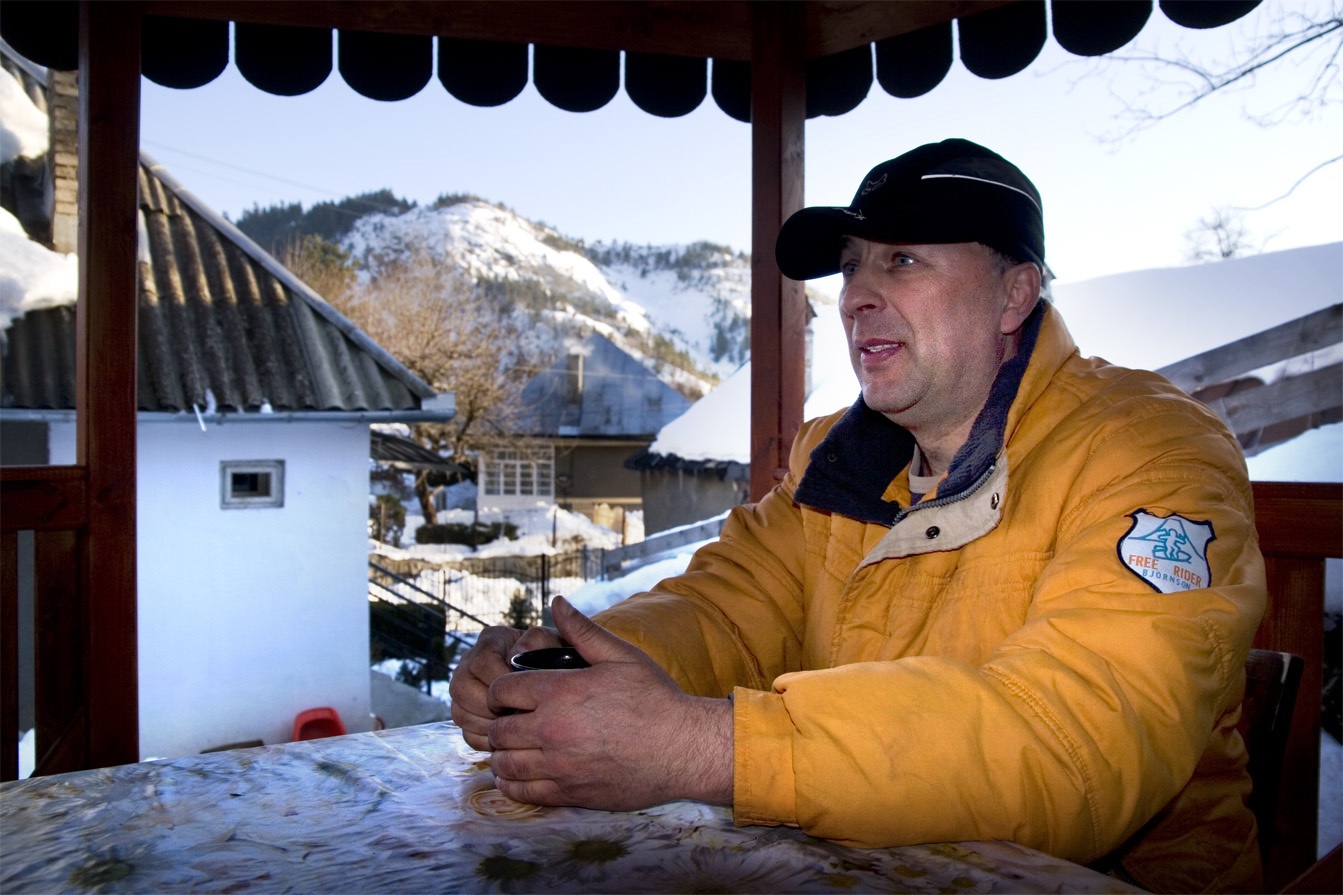
“I never want to leave the village and no money could buy what the villagers have here,” Sorin Jurca, guest house owner
Article funded by
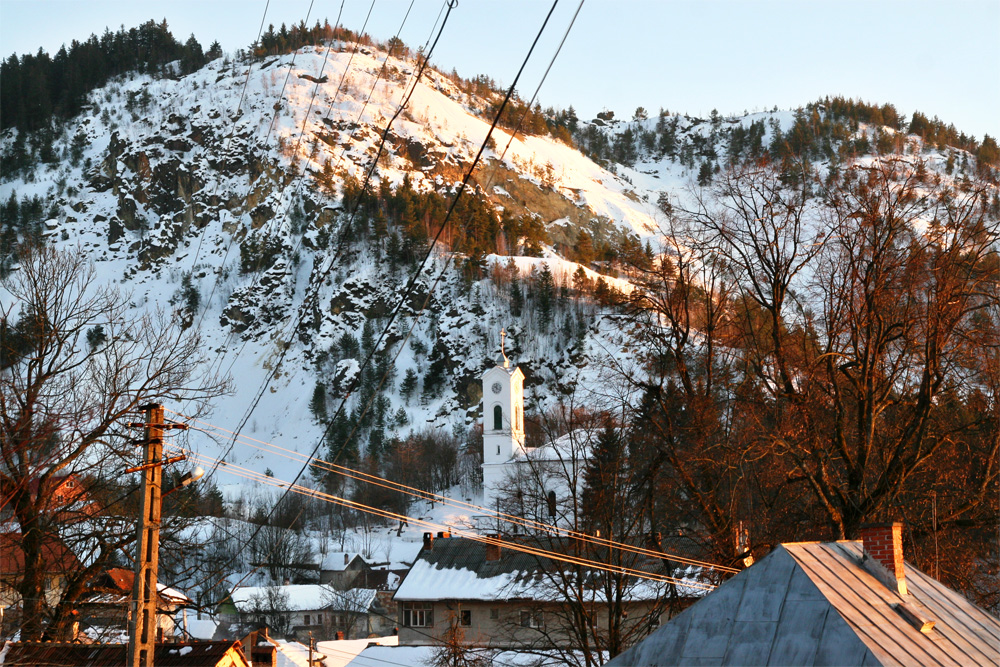
Sorin Jurca sips a coffee in the courtyard of his family home in the village of Rosia Montana in central Transylvania.
He shows us the landscape of the undulating hills of the Apuseni mountains, pinpointing Mount Carnic, a site of historic gold and silver mining for over two millennia.
Inside Sorin welcomes tourists and ramblers, offering them a place to stay and hot food.
He also has a small shop which sells basic food and convenience goods.
For the rest of the time Jurca heads an NGO, the Rosia Montana Cultural Foundation, formerly sponsored by billionaire financier George Soros.
The organisation opposes a massive mining project by Toronto-listed group Gabriel Resources to level the mountains and create a gold and silver mine which will use cyanide to extract the precious metals.
Gabriel Resources has formed a company with the Romanian state, the Rosia Montana Gold Corporation (RMGC), which is buying up houses around Sorin, with a view to destroying them to make way for a giant industrial zone.
“I never want to leave the village,” he says, “and no money could buy what the villagers have here.”
Meanwhile Sorin’s uncle Andrei, heads up the Pro Rosia Montana Association, a rival NGO which supports the mine project.
When we contact him to ask who sponsors his association, Andrei shouts down the phone that he wants to be “left alone”.
The two relatives no longer speak to each other.
Sorin claims that employees at this uncle’s NGO are hired by the mining company.
“They use meal tickets stamped with the company’s logo to pay for food in my store,” he alleges.
The company refuses to confirm or deny its support for the pro-mining NGOs.
For villagers willing to submit to the mining company’s demands, RMGC has offered them the chance to sell their houses and move to a new neighborhood in a nearby town, Recea, on the outskirts of the largest nearby city, Alba Iulia.
This lead to a shrinking of a local population between 2009 and 2012.
125 families have moved to Recea, while more families have chosen to sell and join their relatives in other cities.
But others, like Sorin Jurca, are not moving, leaving a group of committed residents who refuse to sell.
With a community split, as villagers are forced to find allegiance in lobbies for or against the mine, generations of families are now at war.
And while the future of the mine stays in legal limbo, there is no resolution to the battle.
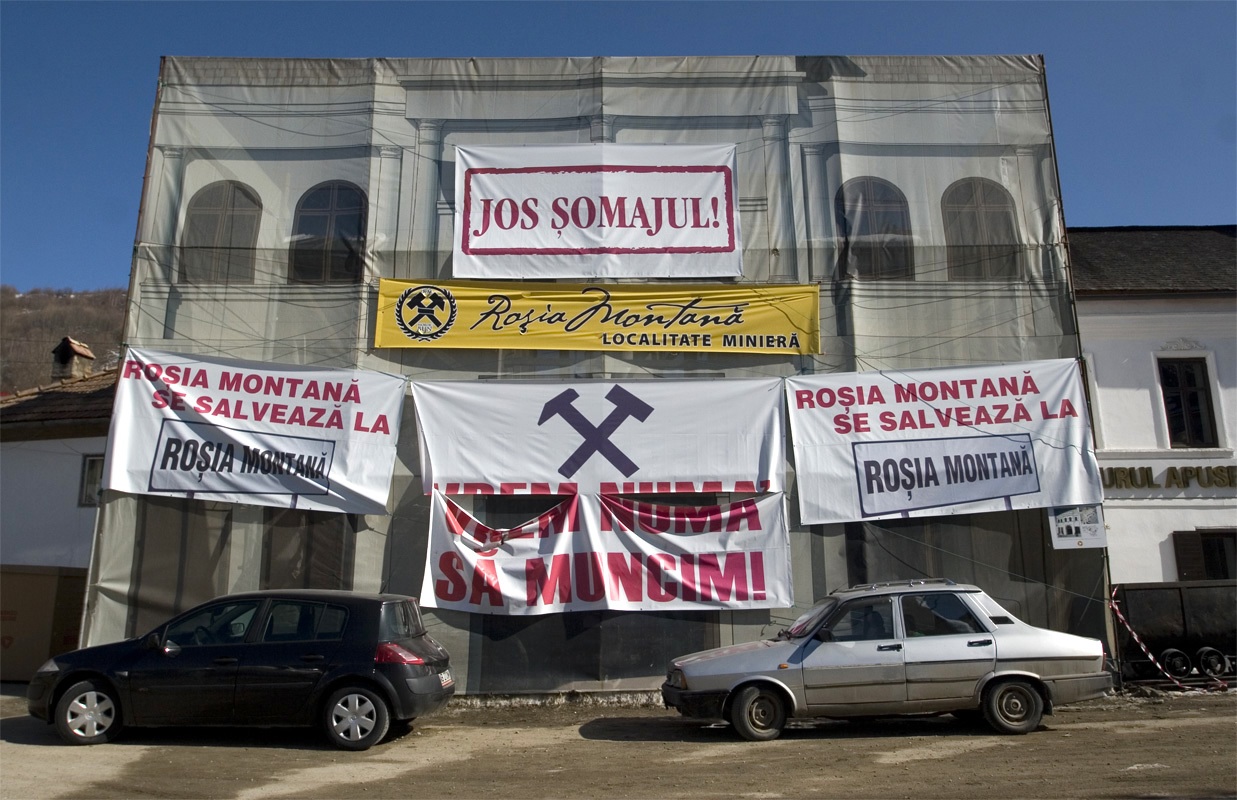
Breaking a village
At the council offices, Rosia Montana’s mayor, Eugen Furdui, is clear where his sympathies lie.
In our 2012 visit, behind his desk, a clock with the Rosia Montana Gold Corporation’s logo was hanging on the wall, next to the Romanian and EU flags.
In the past, Furdui has refused to sanction a listing of this picturesque commune and Roman age mining galleries as an UNESCO World Heritage Site - a move which would halt the mine project.
RMGC is the biggest provider of jobs in the town, where unemployment hits above 70 per cent.
Although tourism has provided some work for villagers, Furdui insists it is not enough.
“This is a mining town!” he says. “It has always been a mining town! RMGC is the only investor that has come to Rosia Montana.”
Furdui blames anti-mining NGOs for the lack of jobs in the area. But during our interview, he failed to illustrate one time efforts he has made to attract other job providers to the region.
Project opponents insist tourism could be an alternative and provide a reasonable income for more locals if there were investment in the sector.
The Rosia Montana village mostly consists of traditional Transylvanian houses, some over a century old. The company has restored a few, but others are supported by poles to prevent them from collapsing.
However in the absence of state investments in the local cultural heritage, RMGC’s CEO Dragos Tanase says that his company will only supply a budget for tourism development when the local community accepts and endorses the mining project.
"The company will finance [the development of local tourism] from the ongoing project,” he says. “That is the proposal. We need a project to move forward.”
Legal battleground
The relationship between RMGC and Rosia Montana town council has been subject to legal challenges, as local NGOs have opposed the mine’s development in the courts.
Due to this delaying strategy, Furdui blames the NGOs for the high local unemployment and poverty in the region.
However the area is designated by the state as a mono-industrial zone for mining, making it hard for non-mining related enterprises to develop.
The relationship between the local authorities and the Canadian company is close.
In one case the regional appeal court in the nearby city of Alba Iulia ruled that two local councillors had a conflict of interest with the company.
They were employed by RMGC while sitting on council panels where they voted on issues affecting the mining project.
In a face to face interview, Jonathan Henry, Chief Executive Officer, Gabriel Resources, objected to the importance of the court decision.
“There are laws that say you can’t have a conflict of interest, but this is a small commune,” he says.
“So what are [the councillors] going to do, are they going to step down and go and beg for bread?...Does it concern me that it shows that we were seen to be buying off local councillors, who happen be passing laws in our favor? No, absolutely not!”
Industrial cost
RMGC aims to extract about 300 tons of gold and 1,600 tons of silver from Rosia Montana.
The plan is to blow up the four mountains carrying the precious metals, leaving behind a lunar landscape and a cyanide wastewater pit called a tailings pond, before the company promises to restore the area after the extraction process ends.
For the village, this means the relocation of hundreds of households, as well as graves, three churches and deforestation.
Romanian authorities have left the expropriation of over 200 households in the hands of the company.
The acquisition of properties has divided some families, where not all owners were prepared to sell.
Two churches and two prayer houses in the village of Corna, as well as six cemeteries from the Rosia Montana commune are affected. This has prompted opposition from church-leaders.
The cyanide-water collection pond will be designed to contain at least 250 Mt of waste.
Yet the perils of cyanide use is fresh in Romania and Hungary’s psyches after an ecological disaster at Baia Mare in the Romania’s in 2000.
The accident occurred when a cyanide tailings pond overflowed and contaminated the Tisza river on the Hungarian border, killing wildlife and depleting fish stocks.
Nation at war
At a national level, politicians shift their position between support, indifference or antipathy to the Rosia Montana mining project depending on how it plays with the voters.
When standing for election in 2012, Prime Minister Victor Ponta stood on a platform against the existing project.
He declared that he did not favor the project because it was not an investment in jobs, but “a business deal involving shares, favorable to several Romanian politicians” headed by his arch-rival, the President Traian Basescu.
Following his election victory, Ponta no longer opposed the mine.
At the Reuters Investment Summit in September, he implied that rejecting such a project would be catastrophic for Romania.
“If parliament decides not to make this project it is not going to be a big issue (economically) but if Romania gives the message that we are ... against foreign investors, against using our potential, that would be a catastrophe for Romania," he said.
He added that he would “keep fighting” for such a project.
Meanwhile President Traian Basescu has been a long-time supporter of the mine.
However, following demonstrations against the project, which saw 10,000s of protestors crowd the streets of Bucharest and Cluj-Napoca and picket Romanian embassies worldwide, he said he would adopt a ‘negotiating’ position between the pro and anti camps.
The Romanian parliament designated a special parliamentary commission to finally decide the fate of the project.
Weeks of debates and street protests opposing the mine concluded in December 2013 with MPs rejecting the exploration in the Apuseni Mountains.
However MPs are scheduled to vote on a new bill that could facilitate express expropriations and the destruction of local heritage.
With the project stuck in a legal limbo for almost a decade, would the company consider suing the Romanian authorities if the project is eventually turned down?
According to Henry in 2012 “... it is not my intention to ever get into a situation where we’re suing the Romanian state. However, if the Romanian state was to suddenly turn around and say ‘Gabriel Resources, thank you for being in our country, thank you for spending 500 million USD, we really appreciate it but the license is no longer valid and we’re annulling because of something that we believe is unlawful’, of course we would reserve the right to be able to use the courts of Romania or the courts of international arbitration to reserve the rights of our shareholders.”
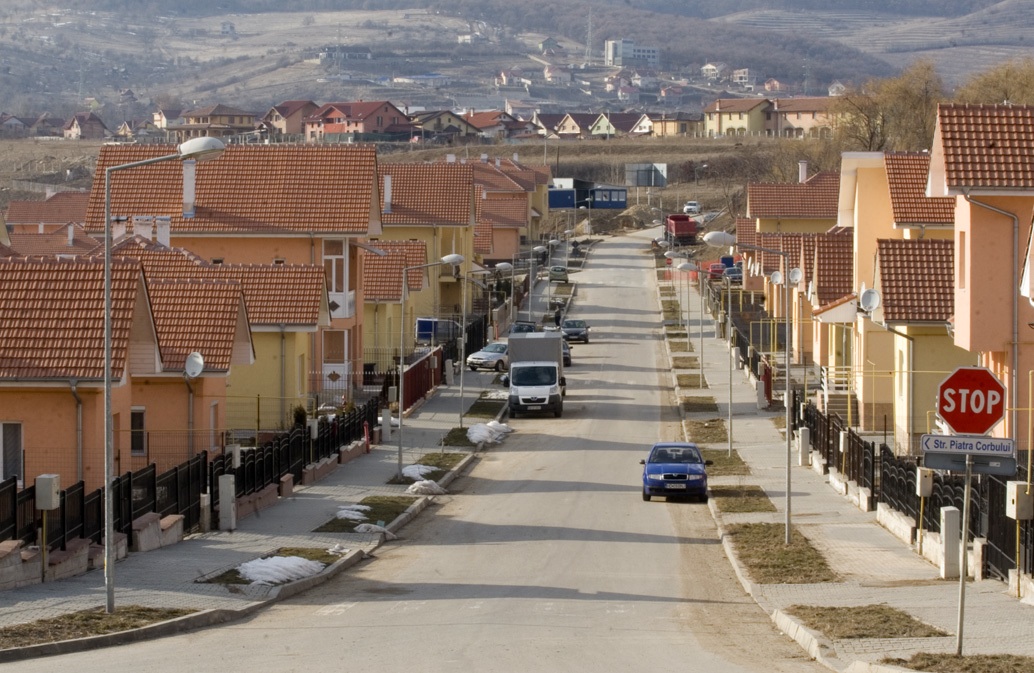
New deal
Meanwhile in Recea, villagers persuaded to sell their properties were relocated to a purpose-built suburban neighborhood. Only one of the 125 houses has not been occupied, according to the mining company.
RMGC facilitated their transportation needs, which will include moving relatives’ remains from those graveyards that will be affected, if the project goes ahead.
Recea brought resettlers closer to the city, a shorter commute to better schools for their children, less work around their households and a little extra money.
In contrast to their former commune, there was no protest staged here and some residents told us they did not miss the arguments raging in their former village.
“See what the Company is doing for us? They’re building a brand new church!” said one satisfied resident, a senior lady wandering Recea’s nondescript streets in March 2011.
Many people stand on the streets in their new barren surroundings, talking with their neighbours and nodding as people pass, as they did in Rosia.
But others feel tricked into moving in. They claim that the company was courteous with them before buying their houses, offering them gifts, like mobile phones, baskets of goods and promises of medical support.
“But once you sold and moved here, they’ve forgotten about you,” says one settler, employed then by RMGC for unskilled work.
We confronted RMGC’s CEO, Dragos Tanase, with the claims of buying goodwill, which he refused to discuss.
A former Valea Cornei villager told us she chose to relocate after losing her job with a regional textile factory. With utility costs significantly higher here than in Rosia Montana, she had to use the money left from selling her property to cover them.
The situation drove her into debt and she has since had a nervous breakdown.
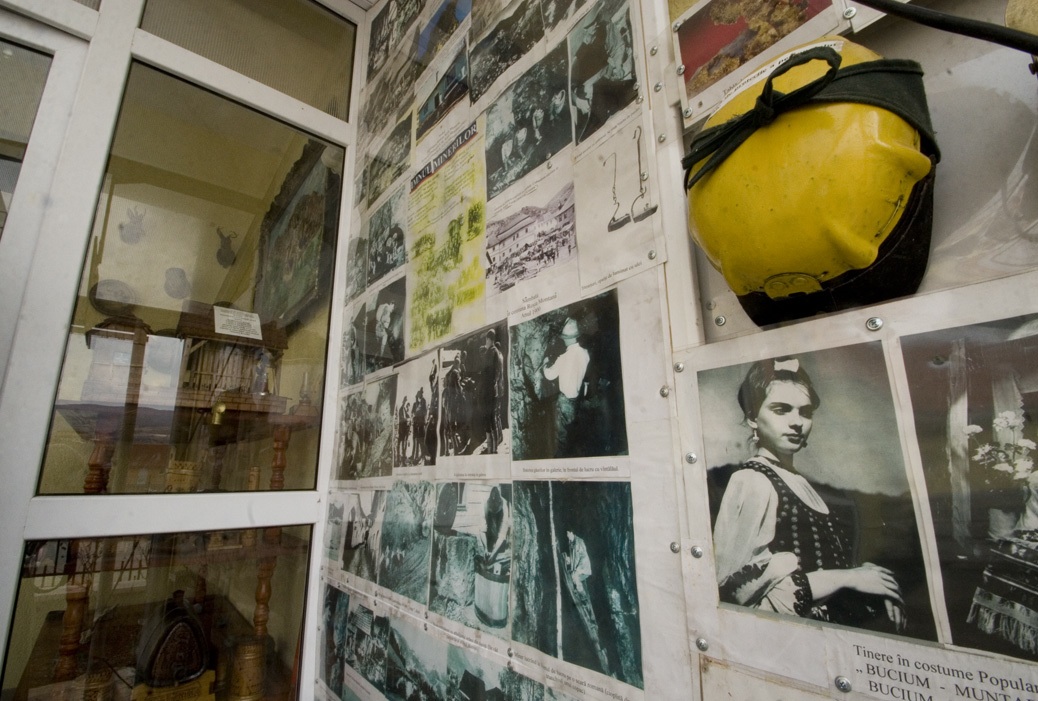
A lady in her 80s moved here to a newly built house with her husband.
She, like all the residents here, would not let us use her real name. They are sensitive to press exposure and are wary of being interviewed publicly.
Her husband keeps active working on fixing up the house and feeding their chickens, while she is pleased there is less tidying up to do here than in her old town.
But she has created a small Rosia Montana museum in her hallway, full of photos, news reports and mementos of her former town.
Pictures of the Cetate massif hang on a wall, next to several tools and a helmet, which her husband, a former miner, used when he was still working.
It seems the memory of the the old village is not easy to leave behind.
“My heart is still in Rosia,” another villager tells us. “Have you felt the fresh the air there? Have you seen the mountains?”
This is part of a series of in-depth stories into Rosia Montana which will be published on this website.
Pictures by Caelainn Barr and Crina Boros, video by Michael Bird
